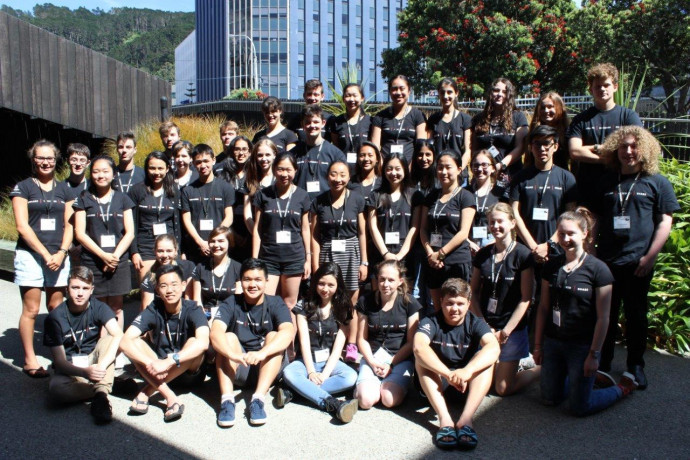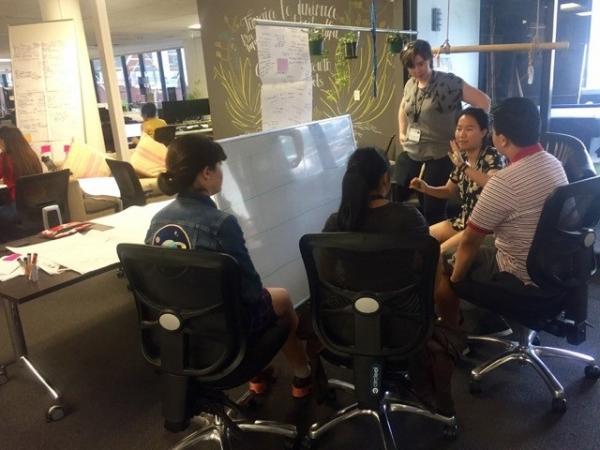News
Published 14 December 2017Self-cleaning hiking boots and computer-based animal testing: creative solutions from Powering Potential students

Forty talented science students from around New Zealand explored, discovered and shared innovative solutions to future problems this week.
Organised by Royal Society Te Apārangi in partnership with Freemasons New Zealand, the Powering Potential programme allowed the students the opportunity to work together in teams with input from a scientist, to research and come up with possible solutions to the question posed by their science mentor.
After less than 48 hours, the students presented their ideas to a public audience and received feedback from their science mentors, who were all impressed with how quickly the students had come to grips with the topics given to them and the creative solutions they had come up with.
- Team Te Pūtaiao ō Rūaumoko gave us insights into how to balance building safety in an earthquake with other social aspects, using the Christchurch cathedral as a case study. Their science mentor was Alistair Cattanach, Director, Dunning Thornton.
- Team Pāua to the People used paleo-climate data and marine fossil records to show that rising sea acidity and warmer oceans will likely cause mass extinctions of our marine species like has happened in the past and urged us to all take action on climate change. Their science mentor was Dr Kate Sparks from the Marine Department at the University of Otago.
- Hour Team questioned whether we should continue to have daylight savings, given the disruption it causes to our body clocks and noted the trend to stop applying it in other areas of the world. Their science mentor was Dr Lora Wu, Sleep/Wake Centre, Massey University.
- Team Lil' Rusty described the pathogens behind kāuri dieback and myrtle rust and came up with a suite of possible solutions for each including self-cleaning hiking boots and empowering communities and iwi to help reduce the pests spreading. Their science mentor was Dr Kirstin Wurms from Plant & Food Research.
- Team The Lawn Moas explored the ethics of de-extinction of iconic New Zealand species such as the moa, but cautioned whether this would take resources from conserving our many threatened species. They asked "Extinction may soon not be forever, but should we still allow it in our future?" Their science mentor was Dr Lara Shepherd from Te Papa.
- Team The Brodents explored the topic of animal research and the possible ways to further the 3 Rs: replace, reduce, refine and ensure the 5 freedoms (such as the freedom from thirst and hunger). Looking at rats, they came up with innovative solutions for the animals to modify their own cages for comfort. They argued that eventually we should be able to use accurate computer models in place of animal testing. Their science mentor was Dr Nicky Watson from the Ministry of Primary Industries.
- Team The Pathogeniuses, created the story of Tyrone, skillfully explaining how overcrowded, damp and poorly-heated heated houses and second hand smoke can lead to infectious diseases in young people. Their science mentor was Dr Donia Macartney-Coxon from ESR.
- Team The Vacteens explored how vaccinations may assist us against the rise in antibiotic resistance but some surveying they did of the public suggested there may be some social resistance to overcome. Their science mentor was Dr Benji Compton from the Ferrier Institute, Victoria University of Wellington.

Working as a team
